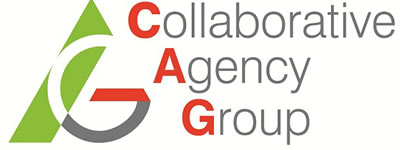
16 Jun Emily Friedman

Speaker: Emily Friedman
Independent Health Policy and Ethics Analyst
Topics:
- Health Care Reform: Pitfalls and Possibilities
- Forces Reshaping Health Care
- Leadership Ethics in an Unethical Age
Emily Friedman is an independent writer, speaker, teacher, and health policy and ethics analyst based in Chicago. She is contributing editor of Hospitals & Health Networks and a contributing writer for the Journal of the American Medical Association, Health Progress, and other periodicals. Friedman also writes a regular column for Hospitals & Health Networks Weekly. She is most noted for her work in health policy (including health care reform initiatives), health care trends, health care quality improvement activities, health insurance and managed care, the social ethics of health care, ethics issues for health care leaders, health care for the underserved, health care history, population demographics and their implications for health care, and the relationship of the public with the health care system.
Friedman has written more than 750 articles and editorials in the past 32 years. She is the editor of Making Choices: Ethics Issues for Health Care Professionals,Choices and Conflict: Explorations in Health Care Ethics, and An Unfinished Revolution: Women and Health Care in America. She authored The Aloha Way: Health Care Structure and Finance in Hawaii and The Right Thing: Ten Years of Ethics Columns from the Healthcare Forum Journal. She writes on health care for the World Book Encyclopedia Yearbook and the Encyclopedia of Bioethics. Friedman is currently writing a history of health care in Minnesota and recently published major articles on lessons from health care in Cambodia, current US health care reform efforts, and food and drug safety in the United States.
A prolific public speaker, she addresses audiences ranging from state legislators to allied health professionals to nursing and medical groups to community groups to hospital and health system leaders and health care associations. She has also lectured at many universities, including Harvard, Princeton, University of California Berkeley, University of California San Diego, Ohio State, Yale, and University of North Carolina Chapel Hill. In 1987-88 she was a Rockefeller Fellow in Ethics at Dartmouth College.
Health Care Reform: Pitfalls and Possibilities
It’s been 15 years since the failure of the Clinton health plan – it’s time to go at it again. There are many issues, an equal number of proposals, and several unasked, and thus unanswered, questions. Whose plan will win out? Will Congress pass it? How might it be implemented? Who will get coverage, and at what price? What will the public-private interface look like? Who will win and who will lose? Will something major really happen this time and, if so, what? And what will its impact be?
Forces Reshaping Health Care
While the health care reform debate rages and people from every point of view promise major change, the fact is that other forces are already reshaping the health care system:
-Profound changes in the demographics of society and patient populations
-Restructuring of medical and nursing practice and the relationship of hospitals with health care professionals
-A growing consumerism among patients
-More forceful initiatives to improve health care quality and patient safety
-State efforts to achieve major system change whether the federal government is able to do so or not
-Shifts in health care technology and how it is used
-Unforeseen events that can throw a wrench into everyone’s planning
No matter what happens in Washington, these forces are at work, and will continue to be at work. How is this impacting our health care system today and what does it mean for the future?
Leadership Ethics in an Unethical Age
The last decade has coughed up more scandals – within and outside of health care – than anyone cares to think about. One result of this has been a much more jaded view on the part of the public and policymakers of the ethics of leaders of major organizations. Conflicts of interest, shady accounting, misleading of investors and donors, and unacceptable personal behavior have made life difficult for managers, executives, and trustees alike. What should the ethical standards be? How can leaders deal with problems when they emerge? How can public trust be reestablished?



